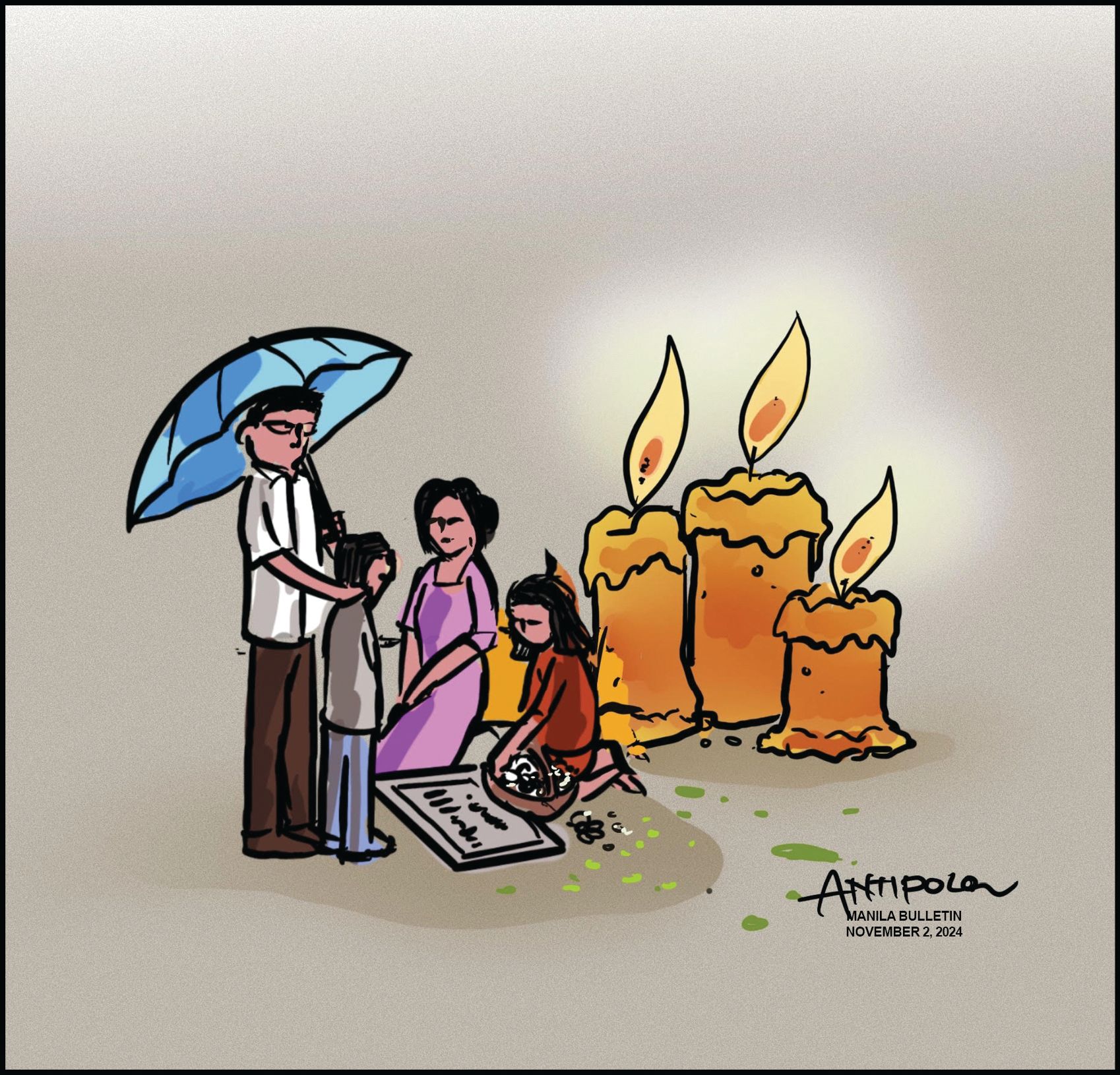
Today, Nov. 2, is All Souls Day, the day for paying respects to our departed ones, a custom that Filipinos have always practiced beginning Nov. 1, which is All Saints Day.
A popular commentary on this custom is that many consider their dearly departed relatives as “saints” for leading extraordinary lives. Stories on their lives told and retold on these days often become family legends. But most attribute that to Filipinos wanting to honor and remember their departed relatives for more than just a day in a year.
Being together as a family is the custom that is most apparent during “Undas,” a term which refers to the shortened version of the Spanish phrase, “Un día de los muertos” (A day of the dead), which includes Nov. 1 and 2 as the days to celebrate, honor, and remember the dead.
Airports, bus and ferry terminals have been overflowing with passengers since Oct. 31, all of them on their way to home towns to fulfil a tradition.
On those two days of the year, families gather in cemeteries to visit the graves of their loved ones. The belief is that not only will the visit appease their souls, but it will continue a Filipino tradition that unites the family.
Because the custom has taken on a celebratory nature, “Undas” also is a time for family reunions and the preparation of special dishes. It is interesting to note that a common dish prepared in almost all regions of the country is a version of glutinous rice cakes. Many articles have explained the presence of sticky rice cakes as a symbol of our close-knit family ties which remain unbroken even after death.
It can be said that the country literally stops and takes a break on “Undas” which are official holidays. Government is on “heightened alert” to keep the public safe on the road, sea, air, and at the cemeteries. The Department of the Interior of the Local Government (DILG) days ago had called on local government units (LGUs) to ensure the peaceful and orderly observance of the “Undas” holidays. The Philippine National Police (PNP) has deployed more than 27,000 police officers nationwide to provide assistance and security. The Bureau of Fire Protection is also on standby to assist the LGUs and the PNP. And the Department of Public Works and Highways (DPWH) has activated its “Lakbay Alalay” roadside assistance program to maintain smooth traffic flow and monitor the large number of vehicles on the road.
Remembering the dead as a family is a revered custom which even the pandemic could not stop. People found a way to reach out and be together through the internet where members of a family went on zoom or messenger and other online apps to talk, pray for the departed relatives, and eat together as a family, though separated by circumstances.
Today, the Filipino tradition continues with a few enhancements like families pitching tents beside the gravesites of their dearly departed at the memorial parks, and camping out through the night. Or, long buffet tables laden with party food for the visitors. Meanwhile, there are also obstacles to being really together with gadgets entertaining each family member who is likely “talking” to friends in other places through social media.
No matter the circumstances of being together, the family gatherings today confirm that the basic unit of society is the nation’s strong foundation.